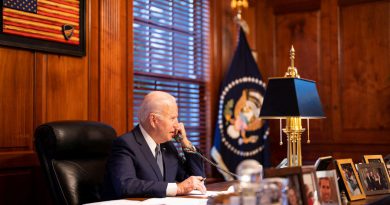Why the abolition of Article 370 is the Final Betrayal of Kashmir?
by Prem Shankar Jha
A long and bloody war will then ensue and terrorism will spread to the rest of India where there is no dearth of soft targets to attack.
India is split over Prime Minister Narendra Modi’s decision to abolish Article 370 by a presidential order. The saffron fold is rejoicing: This government – their government – has had the guts to do what the Congress and its secularists could not. The Kashmir problem is over. There will be a period of unrest, but when it is over, this canker, this anomaly from the past, will have been removed. The building of the modern Indian nation will be complete.
They could not be more wrong. Modi made a huge blunder in November 2016 when he demonetised nine-tenths of the country’s currency in circulation at one stroke, paralysing the Indian economy for months. This did lasting damage to farmers and the rural poor, from which they have not recovered. But he got away with it.
It may be the sense of absolute invulnerability that the recent election has given him that has led him into an even greater blunder now. But this time, he may not get away with it because his action is almost certain to set off repercussions, some of them outside the country, that he will not be able to control.
The first is the reaction of the already deeply alienated Kashmiri youth. Modi correctly anticipated that abolishing Article 370 would make them erupt in even greater paroxysms of anger, than did the death of Burhan Wani in 2016. To preempt this, he moved 75,000 additional troops of the Central armed police into the valley, abruptly cut off the Amarnath yatra, closed all schools and colleges, shut down the internet, blocked mobile telephony and landlines. It was not just ‘separatist’ leaders who were put under house arrest but also, for the first time in Kashmir’s history, leaders of mainstream parties who have never questioned Kashmir’s accession to India.
But what he and home minister Amit Shah seem not to care about is the monstrous sense of betrayal that has swept the rest of the Kashmiri people – that 80-90% of the population who have never wanted a complete separation from India, and to whom azadi has always meant full political autonomy but without the severance of Kashmir’s connection with the rest of India.
This is the vast majority that the government has betrayed. It has done so because of blind adherence to an ideology that, like all others that the world has had to endure, shows no respect for history, and steamrolls facts that do not serve its purpose into the ground. This is the ideology of ‘Hindutva’.
The key fact that the Sangh ignores
The key fact that the Sangh parivar chooses to ignore is that Kashmiri Islam is entirely different from the Deobandi and Barelvi Islam practised by Sunnis in the rest of the subcontinent. Called Reshi Islam (after Rishi), it was brought to Kashmir by Sufis from Persia and Central Asia and spread in the valley by Brahmin disciples, the most famous of whom was Lalded, aka Laleshwari Devi, after whom schools, colleges and hospitals all over the valley are named today.
As a result, Kashmiri Islam is suffused with Hindu practices, so much so that in 1946, when the chief of the Kashmir Muslim conference, Chaudhury Ghulam Abbas, wrote to Mohammed Ali Jinnah asking that his party be inducted into the Muslim League, Jinnah declined because his secretary, Khursheed Ahmad reported from Srinagar that:
“… these people follow a strange form of Islam…. that drives a coach and four through all the tenets that we consider most holy … I fear that it will take a long period of re-education for them to become true Muslims.”
History will confirm that Kashmir was the only princely state in which it was the people, through the National Conference, and not solely the Maharaja, who decided to accede to India.
It will confirm that when armed infiltrators from Pakistan entered Kashmir dressed as peasants in August 1965 at the start of the 1965 war and asked a peasant to point out the way to Srinagar, he sent them on the wrong road and bicycled to Srinagar to warn the government of the presence of the infiltrators. It was this man that the ISI made one of the first targets of the insurgency, in 1990.
Finally, history will also confirm that since the insurgency started in 1989, every Kashmiri separatist leader who has been willing to discuss peace with New Delhi, or even lay out the steps Delhi would have to take if it wanted the insurgency to end, has been assassinated at the behest of the ISI. The list is long: it starts with Mirwaiz Maulvi Farouq, and ends with Abdul Ghani Lone, the father of Sajjad Lone – who joined the alliance with the BJP in 2015, was a minister till the other day, and has now been put under house arrest by the very government he backed. Had these leaders really wanted to break away completely from India, would Pakistan’s ISI have taken such great pains to have them killed?
Tragically, despite the opening of the bus road across the Line of Control, the insurgency in Kashmir dragged on because neither of Modi’s two predecessors knew quite how to end it. But despite this, Kashmiris did not give up hope that Delhi would one day understand what they really wanted and bring them peace. So strong was this hope that as recently as 2009, despite 20 years of insurgency, a survey commissioned by Britain’s Royal Institute of International Affairs had shown that only 2.5-7.5% of Kashmiris in the worst militancy affected districts of the valley said they wanted Kashmir to belong to Pakistan.
Was Modi aware of Kashmir’s history?
Had Modi been made aware of Kashmir’s history, he would have realised that Kashmir had already achieved a version of what V.D. Savarkar had dreamed of in 1923, when he propounded Hindutva – a civilisation in which the (Muslim) population fully recognised, and indeed prized, its (Hindu) cultural roots. Only the name they gave it differed: they called it Kashmiriyat.
As Yasin Malik, the leader of the JKLF, wrote in a short book, The Real Truth, while in jail in the early 90s, it was the Congress’s decision to lift the ban on the Jamaat-i-Islami that had been imposed by Maharaja Hari Singh that began the erosion of Kashmiriyat in the valley.
Had Modi really wanted to integrate Kashmir, therefore, he would have spared no effort to undo the damage done to Kashmiriyat in the previous 42 years. But he did the exact opposite: instead of easing the armed forces’ iron grip on the valley, he tightened it; instead of offering an amnesty to a budding generation of Kashmiri militants driven to desperation by the incessant harassment of their families by the police, he demanded unconditional surrender and deployed the IB’s newly acquired cyber-espionage capabilities to root them out and kill them.
Finally, instead of opening a dialogue with the Hurriyat and JKLF leaders – as he had himself agreed to do by signing on to the Agenda for Alliance document with the PDP in 2015 – he kept them under almost continuous house arrest, and destroyed the last vestiges of their hold on the youth of the valley. As if that were not enough, by also putting all the leaders of the mainstream parties under house arrest, he has made the Kashmiris leaderless and put them at the mercy of every wave of passion or anger in the valley.
Having closed every root to a peaceful end to the insurgency in Kashmir, Modi has decided to employ legal sleight of hand to make the problem disappear. Unfortunately, it will not disappear. Kashmiris will hold their breath till the Supreme Court passes its verdict on the appeal filed against the revocation of Article 370. The court is unlikely to uphold the presidential order, because doing so would fly in the face of its own decisions of 2017 and 2018 that Article 370 is not a temporary article of the constitution.
All serious observers of Kashmir and the Constitution knew that the word ‘temporary’ had been introduced only to convey the fact that the scope of Article 370 would have to be redefined after the return of Pakistan Occupied Kashmir to the state.
By the same token, the abolition of the Kashmir assembly’s right to declare itself a constituent assembly in 1956 was a tacit admission that the legal provisions governing Kashmir’s relations with India could not be kept hostage to Pakistan’s non-compliance with the UN Security Council’s 1948 resolution forever. The Modi government’s attempt to use a General Clauses (India) Act incorporated into the constitution as Article 367 – but passed by the British parliament in 1897 to resolve disputes in the interpretation of words used in the different statutes by which it governed India, at a time when Kashmir was not a part of India – is unlikely to pass muster with the Supreme Court.
Short lived relief
But even if this surmise proves right, the relief in the valley will be short lived. For the jingoism that Modi and the RSS will stir up – against Kashmiri Muslims, against Indian democrats and against the Supreme court itself – will see it coast to victory in the state elections at the end of this year .
After that, the BJP will acquire a majority in the Rajya Sabha and the road to changing the constitution via parliament will be open. It is only then that all hell will break loose in Kashmir.
As the death toll rises, thousands of young Kashmiris who have so far stayed out of the insurgency will join it. Judging from what ISIS has already announced, and what has happened elsewhere after the destruction of its original stronghold in Syria, jihadis from the Middle East, and perhaps even Europe, may find their way into the Valley despite everything that the security forces will do. Islamabad will also come under increasing pressure from its own public to unleash its jihadi tanzeems, and will claim that it cannot hold them back.
A long and bloody war will then ensue and terrorism will spread to the rest of India where there is no dearth of soft targets to attack. The hunt for terrorists that will follow will turn India into a police state. Carefully staged fake encounters, which became normal in Gujarat after the 2002 riots, will become the order of the day throughout the country. Muslims will be the main victims. Kashmiriyat will become a distant memory. That will be the beginning of the end of the India we have known till today.
Article first published on The Wire.
Prem Shakar Jha lives in New Delhi, he is a Journalist and a Writer for The Wire.



